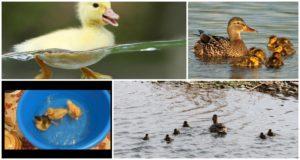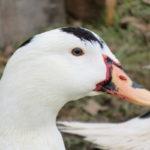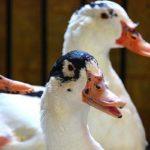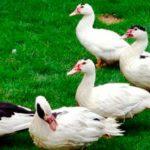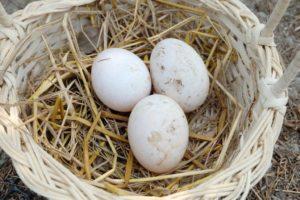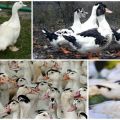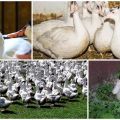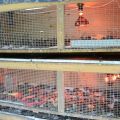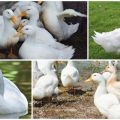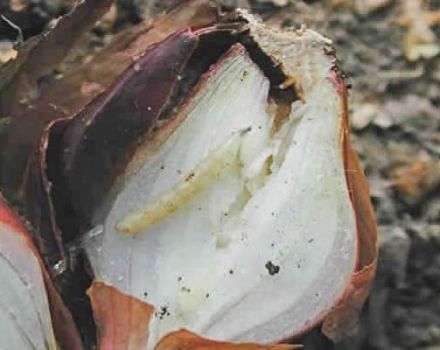How to feed mulardov at home from the first days for rapid growth
Mulard are hybrids of musky and Peking duck, as well as a number of other representatives of domestic waterfowl. The resulting individuals are distinguished by good health and excellent characteristics, due to which they are actively bred on farms and in households. To get the most out of it, you need to know what you need to feed mulard ducks at home for fast growth and effective weight gain.
What can you feed mulard
Mularda are sterile hybrids, but they are extremely fast growing, therefore they are extremely profitable for raising females for meat, and males for foie gras production. Mularda ducks are gradually replacing geese, which are fattened to obtain fatty liver, but proper, balanced nutrition is necessary for rapid weight gain and liver enlargement.
From the first days
In the first 24 hours after hatching, mulard ducklings are left in the nest to dry out and get stronger. It is necessary to feed day-old chicks every two hours. This regime will be maintained for the first five days. First, they give a steeply boiled egg, finely chopped, as well as crumbly millet porridge. It is best to feed small mulard ducklings against a dark background, scattering food in small portions - the chicks react to movement, and at first their reactions are weak, they may not even notice food at first.
Mulard ducklings have a well-developed herd instinct and desire to copy, so they will quickly figure out what to do according to the behavior of their more intelligent brothers. Already on the third day, the chicks are able to eat fresh greens, so they give it chopped up or release them to graze on the grass. Mulard ducklings need to be monitored by placing them in an aviary or fence - babies can be dragged away by weasels, wild cats or even birds of prey - crows, hawks, eagle owls. Place them in a warm, dry place at night.
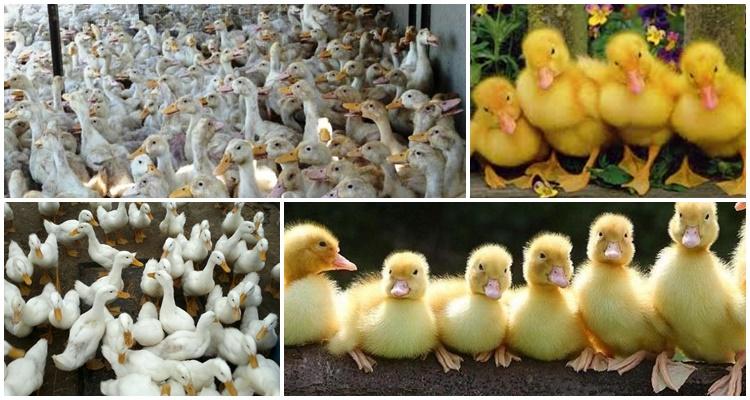
From one week
Weekly mulard ducklings are fed with wet mash of crushed grain: 2 parts of corn plus 1 part of wheat. You need to add fish or meat and bone meal to the mixture. Chicks should have clean drinking water at all times and change it regularly.And the food is given as much as the mulard ducklings are able to eat at one time, because they will stain or trample the excess, and this provokes diseases.
Two week old ducklings
At this age, chicks eat everything, and they can already be released with adult birds to the pond - natural or artificial. Their diet is based on a mash based on crushed cereals, mainly corn, but also includes other grains.
It is important that your diet is balanced and contains enough vitamins and minerals. To do this, mulard ducklings are given chalk, crushed shell and shell rock, as well as green food. It can be grass, chopped dill, tops, vegetables.
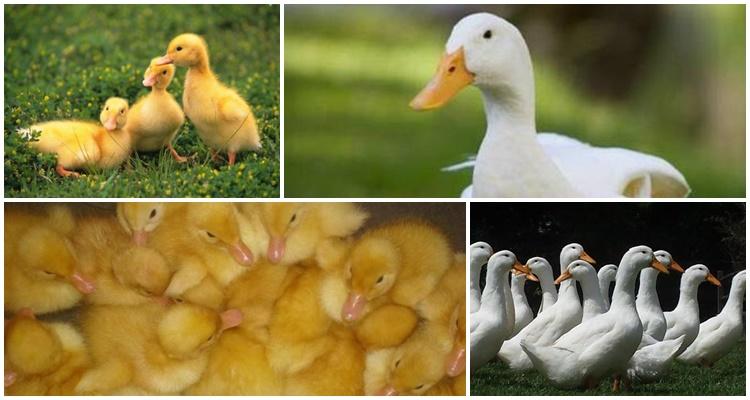
Feeding an adult bird for fast growth
Three-week old mulard ducklings can be fed three times a day by adding large quantities of grass to their food.
Cottage cheese and milk waste are gradually introduced into the diet, and monthly chicks are fed with compound feed with the addition of greens, food and garden leftovers, skim milk, and so on, not forgetting about minerals and vitamins, adding sand and bone, fish meal.
Adult mularda ducks are actively grazing, but plant foods alone will not be enough for rapid weight gain. The poultry being fed must be supplied with grain, not necessarily whole. It goes well with pulping, bran, cake and other grain waste.
Features of the diet by seasons
In winter and spring, before the active growth of grass begins, it is difficult for mulardam chicks to provide fresh greens, therefore the basis of the diet at this time of the year is made up of grain-based mash, compound feed and preparations made in summer. It is necessary to ensure that the food is not just abundant, but balanced.
Although mularda do not tend to accumulate fat in the early period, excessive calories in the absence of grass and other plant foods can still cause obesity, which will ruin duck meat, reduce its quality and cost.
In summer, mularda ducks should receive as much greens as possible. Like all waterfowl, they are passionately fond of algae and duckweed, therefore, if possible, they should be released to the pond or collect this useful food. It is essential for rapid weight gain, as are other fresh vegetation, calcium, mineral supplements and vitamins.
How to feed properly?
In order for mulard ducks to grow quickly, they need competent care and complete, balanced food. But it is not enough just to know what kind of food should be given to the mulards. There are rules that must be followed strictly:
- Little ducklings must be fed with damp mash.
- The food is removed after eating so that the bird does not litter it.
- The feeder is needed so that the mulards do not interfere with each other.
- Mineral additives - chalk, shells, limestone, crushed egg shells - must be placed in a separate container and changed regularly.
- The water should be constantly, but it also needs to be frequently replaced with fresh water, since the mulards stain it a lot.
- Ducks need grass and greens, so they are not only added to the feed, but also be sure to let the birds go for a walk.
- In addition to grain and grass, vegetables and leftovers from the table, mulardam are fed protein products: cottage cheese, dairy and boiled meat waste, meat and bone and fish meal.
- Duckweed is a favorite food of mulards and other ducks, but you can only gain weight if you use high-quality feed.
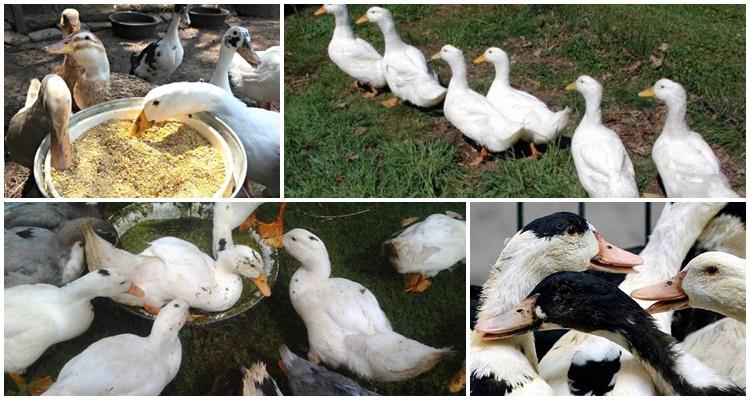
For fattening mulard ducks, you can use specialized feed or reduce the cost of food if you create mixtures yourself, according to existing recipes, or following the advice of experienced poultry farmers.
What should not be given to mulardam
With unpretentiousness in food, mulard ducks should not eat the following foods:
- Poisonous plants such as celandine or henbane.When free-roaming, you need to monitor what is growing in the area.
- Maple leaves are toxic to ducks.
- Fresh rye. Only mature grain can be fed.
- Raw nettle (adult plants) can burn the mulard esophagus, so the grass is pre-scalded with boiling water and crushed.
- Fresh whole milk turns sour quickly and can lead to poisoning in ducklings and adult ducks.
- Flour and grain are ground into dust. Such products turn into dough that clogs the nostrils of the mulard and the beak.
- Stale food that is moldy, sour, or fermented.
- Human food with salt, sugar, herbs and spices.
Novice poultry farmers are often interested in whether it is possible to give mulard ducks green onions. It is necessary, it is useful for chicks and adult birds. The onion is chopped and served in the mash, and the little ducklings are added to the chopped egg. This strengthens the immune system and prevents the development of a number of diseases.
